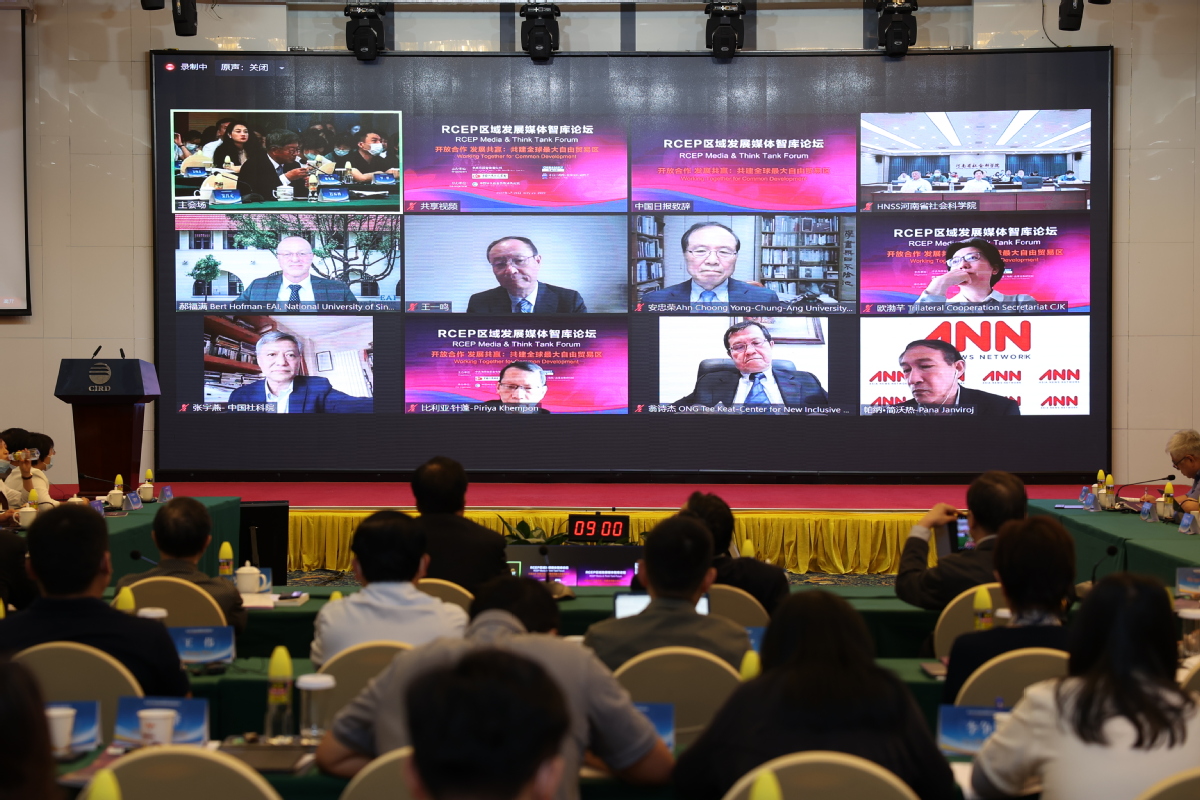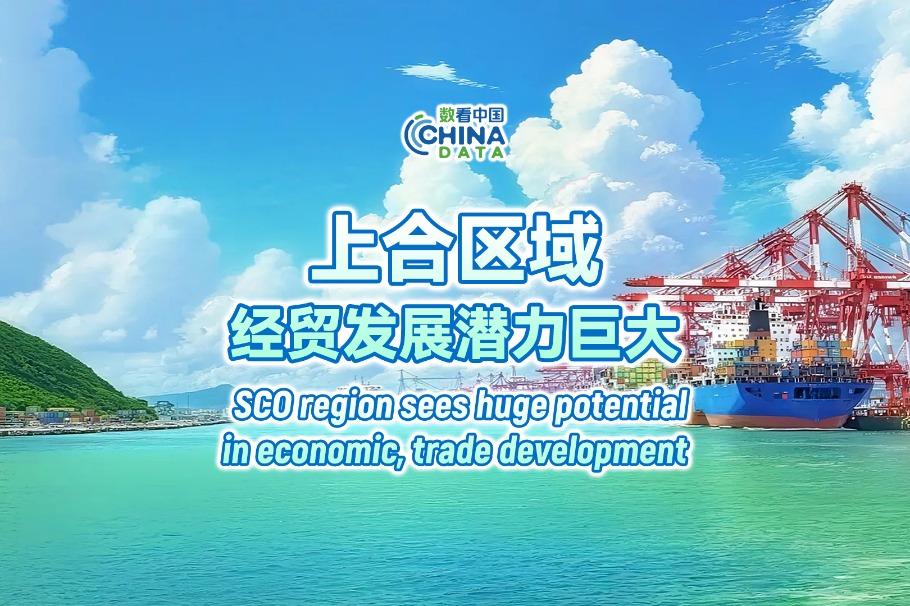'Working Together for Common Development'—Plenary session of the CIRD Forum

Ong Tee Keat, former minister of transport of Malaysia and currently president of the country's Center for New Inclusive Asia, made a speech at RCEP Media & Think Tank Forum on Sunday.
'Working Together for Common Development'—Plenary session of the CIRD Forum
RCEP-- Prospects amid the arising challenges

With the RCEP coming into fruition on Jan 1st, 2022, a huge market comprising about 30 percent of the world population and one third of the global GDP contribution was finally open up amid rising de-globalisation against the backdrop of a gloomy global economy in the Post-Covid19 era.
Many international economic analyses appeared optimistic in their prognosis for RCEP. One estimate, published by the US-based Peterson Institute for International Economics before the RCEP sign-off on November 15th, 2020, projected the deal could add USD500 billion to the world exports by 2030. The North Eastern Asian trio of China, Japan and South Korea is deemed the major beneficiaries, with China's exports projected to rise by USD248 billion, Japan seeing an extra USD128 billion and South Korea USD 63 billion. While another study by the Japan Institute of International Affairs indicated that South Korea may see the biggest economic contribution, with RCEP adding 6.5 percent to its real GDP, comparing with Japan gaining 5.0 percent and China 4.6 percent.
However all these were the optimistic projections prognosed before the Indo-Pacific Economic Framework (IPEF) was rolled out by the Biden Administration. It's no secret that the newly minted Framework was focused to counter China's growing geopolitical influence in the region. Contrary to the RCEP, the Indo-Pacific Economic Framework is a US-led Presidential initiative, with all rules and standards dictated unilterally by Washington. The absence of Congress ratification made it different from the traditional Trade Agreement. The much anticipated tariff reduction and market access to the United States were nowhere sighted in the economic statecraft of Biden's Indo-Pacific Strategy.
Nonetheless, its high overlapping membership with RCEP is no coincidence. Of the 13 inaugural members of the Economic Framework, only the United States and India are not affiliated with RCEP.
Is this a boon or a bane to the regional economic integration of Asia Pacific? Would IPEF merely play a sparring partner to RCEP, or is it a designated vehicle tasked to rival RCEP? This remains to be watched. But the reality is RCEP needs no duplication in its role to promote regional economic integration.
While the nascent agreement is placed under microscopic scrutiny in many aspects by various quarters, the RCEP-sceptics were quick in casting aspersions on the trade deal's purported failure in benefitting the developing economies in ASEAN. They seem to ignore the fact that RCEP harmonizes rules-of-origin provisions and establishes a single set of regional content rules. This will effectively create a single market for intermediate goods that will promote the creation of supply chains across the region. In this perspective, the developing economies in ASEAN will undoubtedly benefit the most.
Under the harmonized rules-of-origin provision, tariff exemptions would apply as long as a sufficient proportion of the goods for export is made of inputs sourced from any of the 15 members of the bloc. This will reduce production costs in the supply chains of Multinational companies (MNCs) in these countries, while helping to strengthen and deepen the resilience of regional industrial supply chains.
All in all, this would translate to more job creation, higher GDP growth and speedier poverty reduction in the region. This is crucial to ASEAN where propelling economic growth to drive post-Covid19 recovery remains central to its agenda.
Be that as it may, the naysayers might still turn sceptical of RCEP's commitment to meeting the discerning standards of labour, environment and subsidy-free requirements set by the developed economies. They resort to hair-splitting by raising the threshold for RCEP, irrespective of the capacity of its developing and less-developed economies to meet the criteria.
Nonetheless, RCEP remains staying true to itself by prioritizing the need to bridge the economic and development gaps between the developed and less developed member states. Due cognizance is given to the disparate level of development among the RCEP member states. Less developed economies in RCEP such as Laos, Myanmar and Cambodia are given differential treatment with additional flexibility in implementing the RCEP agreement.
In the ASEAN perspective, its centrality in RCEP has never been an issue. No foreign political agenda could ever override its concerted aspiration of reinvigorating the floundering economy devastated by the deadly contagion. And RCEP provides the viable solution. Ultimately it is still the livelihood and well being of the people in ASEAN that matters.
ONG TEE KEAT
Chairman, Centre for New Inclusive Asia (CNIA)
Kuala Lumpur, MALAYSIA
27th May 2022.




































